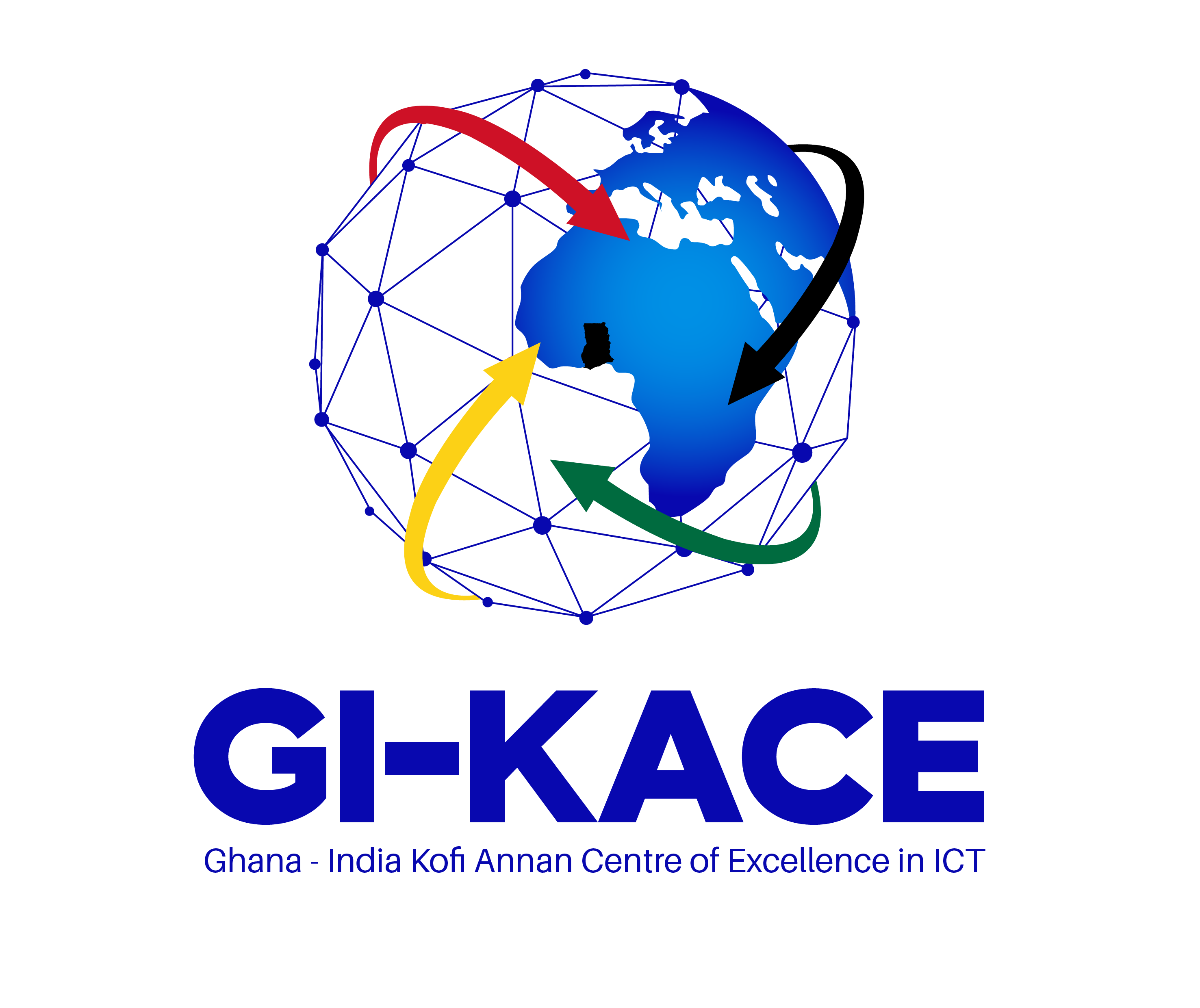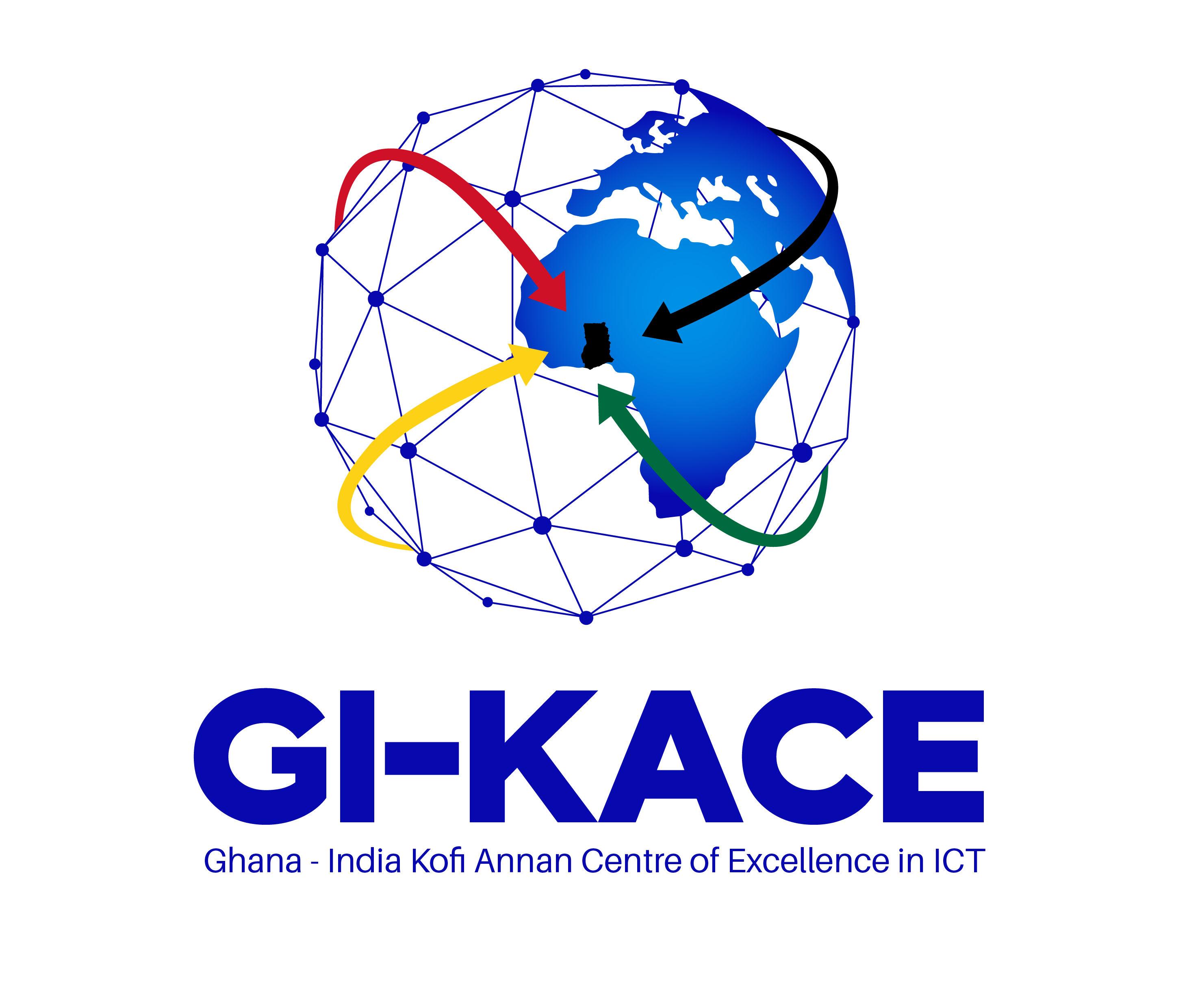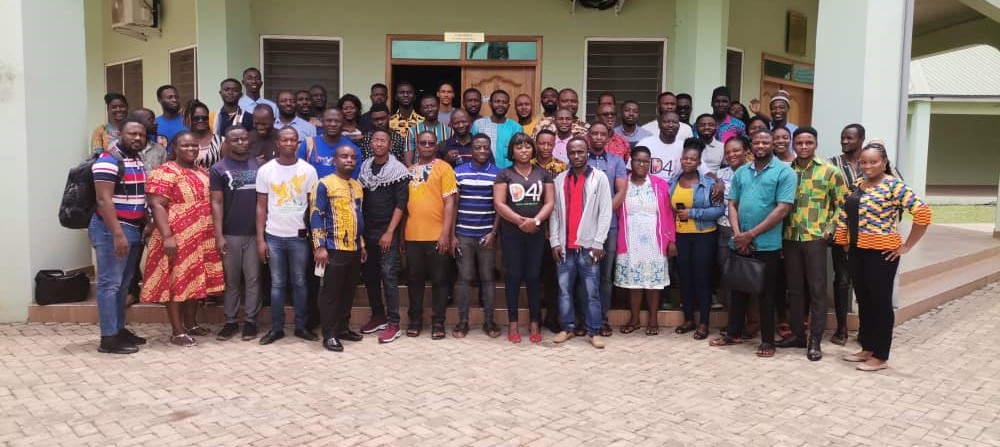The Ghana-India Kofi Annan Centre of Excellence in ICT (GI-KACE), in collaboration with GIZ, has trained Community ICT Centres (CICs) Managers and GIFEC Zonal Managers in digital innovation, digital skills, digital entrepreneurship and the growth of the ecosystem for sustainable development.
The purpose of the project is to build local capacity in AI and emerging technologies for national development and achievement of SDGs, Promote the participation of girls and women in the digital ecosystem.
Speaking at the closing ceremony of the training, the Director for Research and Innovation at GI-KACE, Mr. Fredrick Yeboah, stated that the training program is one of the conscious efforts of GI-KACE to bridge the gender digital divide in the informal sectors and improve growth opportunities for start-ups. According to him, one of the purposes of the training is to establish innovation ecosystems and bridge the urban-rural divide by expanding digital services to rural and underserved communities.
The project Manager for GI-KACE, Mrs Priscilla Hope, in her closing remarks, said the training project had been a success, stating that, in the last few years, Ghana has been on an accelerated path toward a digital economy. Training of this nature is GI-KACE quota towards Ghana’s Digital Economy Agenda.
The Technical Advisor of DTC of GIZ, Mr Walter Dzimey, was of the view that the goal of the project is to drive growth and formalise the economy. He said, “Since 2016, the Government has spearheaded a digital transformation agenda in the quest to transform the economy anchored on technology.
According to him, this is to speed up the country’s industrialisation efforts and create jobs. The government has implemented various digitisation projects in different economic sectors, such as in the public and financial sectors among other areas, to promote efficiency and transparency.”
Mr. Dzimey revealed that, as part of this programme, GIZ had been involved in projects which aim to build the human development capital of the country as a means to support economic development.


